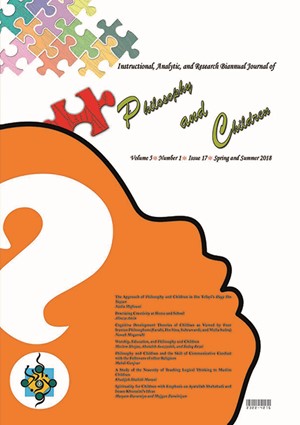-
-
List of Articles
-
Open Access Article
1 - Editor Notes
Touba Kermani -
Open Access Article
2 - The Approach of Philosophy and Children in Ibn Tufayl’s Hayy Ibn Yaqzan
Nadia Maftouni -
Open Access Article
3 - Practicing Creativity at Home and School
Alireza Amin -
Open Access Article
4 - Cognitive Development Theories of Children as Viewed by Four Iranian Philosophers (Farabi, Ibn Sina, Suhrawardi, and Mulla Sadra)
Nawab Moqarrabi -
Open Access Article
5 - Worship, Education, and Philosophy and Children
Moslem Shojae -
Open Access Article
6 - Philosophy and Children and the Skill of Communicative Conduct with the Followers of other Religions
Mahdi Ganjvar -
Open Access Article
7 - A Study of the Necessity of Teaching Logical Thinking to Muslim Children
Khadijeh Shahidi Marani -
Open Access Article
8 - Spirituality for Children with Emphasis on Ayatullah Shahabadi and Imam Khomeini’s Ideas
Maryam Davarniya
-
The rights to this website are owned by the Raimag Press Management System.
Copyright © 2017-2026







